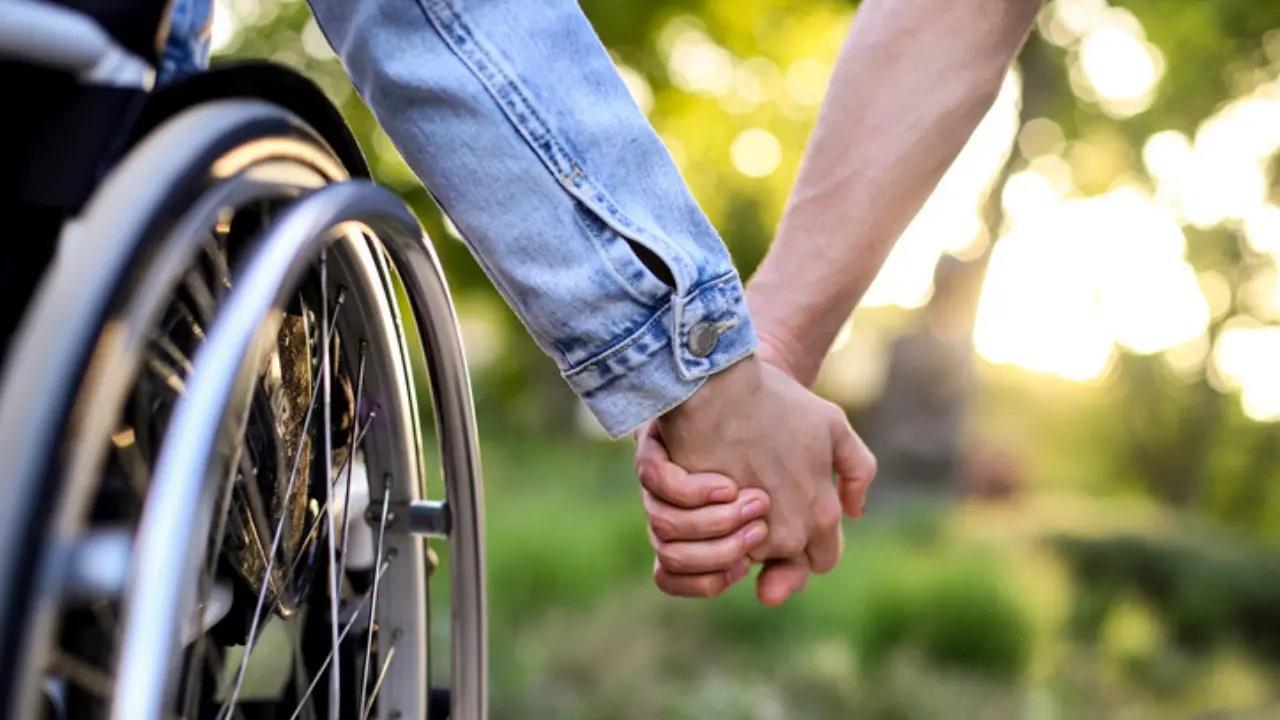According to the Census 2011, there are 26 million people with disabilities in India and among them, 11 million were found to be women with disabilities. People with disabilities face many hurdles in their fight for inclusion and equality

Image for representational purposes only. Photo Courtesy: iStock
The daughter of a daily wage worker, 29-year-old Shabana Khan was born without upper limbs. Hailing from Haryana, her family consists of seven members with her father as a sole bread earner. Shabana, being the eldest of her siblings, always wanted to support her family but faced disappointments owing to her condition.
Having the dream to work in the formal sector, she applied to several businesses, however, nothing worked out in her favour due to her disability and lack of communication skills. Now, Shabana has found a reason to be happy. With a glimmer in her eyes and a wide smile—she says, “I am now employed.”
ADVERTISEMENT
However, crossing this barrier was not easy for her and continues to be a dream for several women with disabilities like herself, shares America India Foundation who equipped her with training to become job-ready.
According to the Census 2011, there are 26 million people with disabilities in India and among them, 11 million were found to be women with disabilities.
People with disabilities face many hurdles in their fight for inclusion and equality. Although both men and women with disabilities are subjected to discrimination, it is the latter who are at a further disadvantage. Women with disabilities face “double discrimination” given that these women are subjected to not just disability limitations but also gender oppression.
Breaking Barriers, Overcoming Obstacles
According to a Ministry of Statistics report on persons with disabilities, nearly 64 percent of persons with disabilities in India don't have jobs, and more women are unemployed compared to men.
The lack of access to employment is not merely structural. But also extends to instances when women with disabilities manage to get employed.
From a gender perspective, men with disabilities are almost twice as likely to have jobs than women with disabilities. When women with disabilities work, they often experience unequal hiring and promotion standards, unequal access to training and retraining, unequal access to credit and other productive resources, unequal pay for equal work and occupational segregation, and rarely participate in economic decision-making.
Also Read: 'I'm a disabled woman, therefore I'm not a prospect'
According to ILO, women with disabilities are at greater risk of poverty than men with disabilities (Mitra et al., 2011). Their poverty is linked to their minimal education and skills development opportunities. Approximately 785 million women and men with disabilities are working age, but most do not work. When they do work, they earn less than people without disabilities, but further gender disparities exist. Women with disabilities earn less than men with disabilities.
Employment for women with disabilities is a strategic advantage to businesses and the gap in this market can be bridged through skill development and training.
Through a mobilisation drive by America India Foundation in Delhi, Shabana was provided with the required training and placed into a data entry job role. It is an AAA-certified accessible job portal, catering to remote and inclusive employment for PwDs. Linked to Divyangjan Rojgar Setu PM Daksh Portal, this portal is poised to serve 10 million PwDs across India.
Shabana Khan, says, “I have a newfound confidence in me getting trained and hired. I can easily step out of the house and do everything by myself. I loved embroidery, sketching, painting and stitching but through the training, I also learnt to use the keyboard with my feet and now I can support my family.”
With an aim to double the number of Persons with Disabilities (PwDs) engaged in formal sector employment and strengthening the entrepreneurial landscape, AIF unveiled DI-verse, a groundbreaking initiative.
DI-verse is dedicated to transforming workplaces into inclusive environments committed to the social and financial advancement of PwDs. It is an offshoot of AIF’s leading program - Ability Based Livelihood Empowerment (ABLE), which has trained over 18,000+ PwDs and provided jobs to 10,000+ candidates through partnerships with 1,800+ inclusive employers.
“Helping persons with disabilities find their career paths and gain income opportunities, has been one of the big focus areas for American India Foundation. Training PwDs and identifying job opportunities is not just a step towards inclusion, but a strategic advantage for the businesses”, Mr. Kamesh Sanghi, Director of Livelihoods, AIF, mentioned.
In India, where there are 26.8 million people with disabilities, the women population still face challenges. However, amidst the statistics lies a compelling story of progress, embodied by trailblazers like Shabana.
Government of India provides many opportunities in terms of education and employment to persons with disabilities. Particularly, the Rights of Persons with Disability (RPWD) Act, 2016 provides for 4 percent reservation in employment in the establishments of the Government of India, State Governments and Public Sector Undertakings against identified posts for disabled population.
Also Read: Meet Mumbai's young slum champions transforming lives
 Subscribe today by clicking the link and stay updated with the latest news!" Click here!
Subscribe today by clicking the link and stay updated with the latest news!" Click here!








